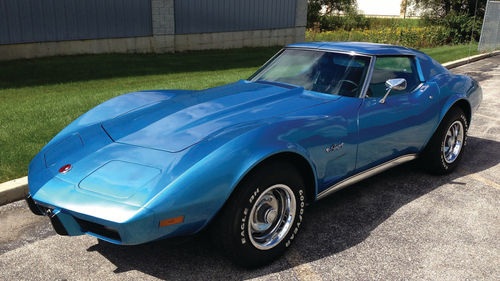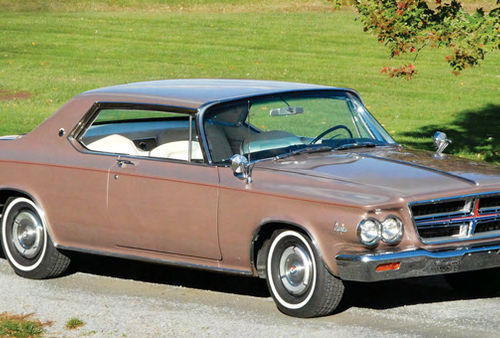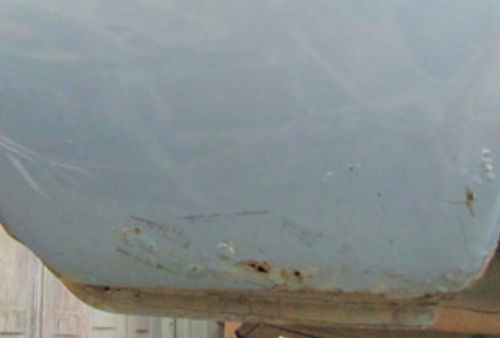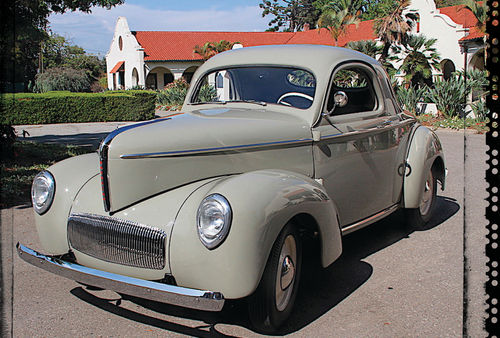After all this brake work… the pedal still sinks
Question:
In October of 2018 I bought a 1976 Corvette for my wife on her 50th birthday. It’s her dream car and I was fortunate to find exactly what she wanted; manual four-speed, power steering, power brakes and air conditioning. The car looked, ran and drove great.
Recently, the brakes got spongy. I examined all four brakes and found one front caliper looked a little damp. I replaced both front calipers, front pads, front rotors, and did inner and outer wheel bearings and inner bearing seals while I was at it. After bleeding with fresh DOT3 fluid, using the pump-pump-hold method with my wife in the car, the brake pedal was firm. However, when we started the engine the pedal immediately sank to the floor.
I removed the master cylinder and found a little brake fluid where the metal rod from the booster enters the master cylinder, so I replaced the master cylinder. I bench bled the new master cylinder until no bubbles, and then installed it. I bled all four brakes again with my helper in the car. The pedal was firm until we started the engine, at which time the brake pedal sank to the floor again.
As I continued troubleshooting, I disconnected the brake lines from the master cylinder and installed brass plugs into the master cylinder threaded ports. With these in place, the brake pedal was firm even when the car was started. In my mind, this eliminated the brake booster and master cylinder as the source of the problem.
I then found that if I reconnected either the front brake line or the rear brake line to the master cylinder, leaving the brass plug in place on the other port, I have the sinking brake pedal when I started the engine. In my mind, this says that I have air in both the front and rear lines or calipers.

I have bled the brakes over and over again using my helper, gravity bleeding and suction bleeding using Harbor Freight pneumatic brake fluid bleeder (item 92924) with my compressor. I’ve tapped on the calipers during bleeding to help dislodge any air bubbles, and was sure to bleed both bleeders on each rear caliper (there is an inner and outer bleeder). I’ve gone through quarts of brake fluid, and I still have the same exact problem.
I’ve been researching the online forums and asking questions, but I am stumped. Thanks in advance!
Answer:
This may sound crazy, but it might be that nothing is really wrong. I asked the experts at C.H. Topping, a nationally known brake shop and parts house that does brakes for all kinds of cars including race cars, classics and hot rods, and they said that what you were experiencing is the fact that there is a compressibility factor with all new brakes.
If you installed everything properly, the pedal may still go down a lot when you start the car because everything is new and there is still play in the system. But if you drive the car for a few miles and let everything compress and wear in, you should be fine.
One other possibility is that your Corvette’s brake flex hoses may be faulty. In that case, you can use small, smooth-jaw Vise-Grips to clamp off all four hoses, after which you should have a firm pedal. Then you can remove one Vise-Grip at a time to determine which hose or system is the problem. Grip the flex hoses near the end closest to the master cylinder for best results. If you find a faulty hose, or if the pedal goes down when you remove one of the clamps, you will at least know where the problem is.
If you need components or further information, try Vince at:
C.H. Topping
520 W. Ester St. Long Beach, CA 90813
















